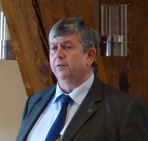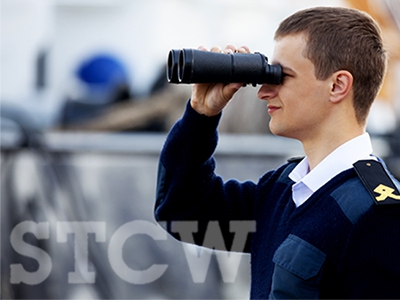Retaining the best crews on board is one of the biggest challenges that safety industry is facing, thus, our SeaSense column, in association with the North P&I Club, is now focusing on IMO’s STCW Convention, which sets the baseline for seafarer’s training. According to IMO, the main purpose of the Convention is to promote ‘safety of life and property at sea and the protection of the marine environment by establishing in common agreement international standards of training, certification and watchkeeping for seafarers’. However is this Convention delivering the seafarers the industry needs? Therefore, we have asked global experts to assess how STCW has succeeded so far in playing its part.
The IMO Convention on Standards of Training, Certification and Watchkeeping for Seafarers (STCW) – is it delivering the seafarers the industry needs?
 Gary Prosser Deputy Chief Executive Officer, AMSA |
 Colin McMurray Colin McMurraySailor’s Society Trustee and Director, Clyde Marine Training |
|
| Yes. The STCW Convention has provided a clear and consistent approach to seafarer training and certification across the board. Providing a benchmark for industry is a means of ensuring all seafarers are trained to a consistent minimum standard which results in the protection of life and the environment, safe vessel operations and a reduction of incidents across the industry. Thanks to the work of the IMO, the STCW Convention continues to evolve with changes to the industry and ship operations. Good recent examples are the introduction of training to operate vessels in polar waters following the introduction of the Polar Code, enhanced training for those serving on passenger vessels following the grounding and subsequent capsize of the Costa Concordia and addressing training for those serving on vessels that are subject to the IGF Code. | Maybe. The 1995 and 2010 amendments brought STCW more up to date, but is it keeping pace? The facts suggest not. The industry still relies on traditional methods of delivery with variable quality and results. It needs to be brought up to date with a serious look at virtual reality and advanced simulation, and the potential of artificial reality as a game changer to enrich the way in which we train. A new way of thinking will enhance realism and knowledge retention, making the transition from training to job seamless. The next generation expects a very different way of learning; if we don’t provide the right platform it is our industry that will lose out. | |
 Colin Gillespie Deputy Director (Loss Prevention), The North P&I Club |
 Capt. Apostolos Skempes Training Manager, Arcadia Shipmanagement |
|
| A qualified Yes. STCW has allowed the industry to source seafarers from many different parts of the world, and to be reasonably confident that they will have received a broadly similar standard of training. This is backed up by statistics from Seagull AS CES & Benchmarking which shows that the major seafarer supply nations score similarly when tested for STCW knowledge. STCWs worldwide use has also facilitated the supply of seafarers. This has meant that seafarer supply and demand is not (too) imbalanced. These are big positives for the industry. However, there is a lot of anecdotal evidence from ship owners suggesting that there are issues with the competence of crew. Seagull AS CES & Benchmarking also points to quality issues, with average scores hovering around 60% when tested for STCW knowledge and with a significant number of seafarers well below this average. This may not be directly attributable to the convention but rather may result from weaknesses in implementation and oversight at national level. Ship owners themselves also have a vital role to play in seafarer training. The single most important part of an officer or engineer’s training is the time spent on-board and this is where shipping companies can add most value. Shipping seems to be going through a period of change driven by both technological advances and regulatory requirements. It is vital that STCW constantly evolves to enable seafarers to meet these challenges. | Maybe, considering that STCW was amended, aiming to provide what the industry needs. Just to clarify: STCW is NOT delivering seafarers. STCW sets standards, upon which the IMO Members (Governments and States) through their training institutes – public or private, will deliver competent seafarers to the industry. Industry needs (demands) seafarers who will prove competent in technical, but also in soft skills. Both these skills involve, specialization (technical skills) to various hardware (and – recently – software) competency and, adaptation (soft skills) to various cultures, managerial styles and attitudes. The evaluation of the outcome produced by such competent seafarers, can only be made through proficient appraisal. And this is something that STCW barely addresses. | |
 Capt. John Dickie Managing Director, Joint Development Associates Ltd. |
||
| My answer is No. Competence is the right direction but as the maritime industry is evolving the STCW needs to be in step with industry demands. The 2010 amendments were a start but much more needs to be done. Officers and crew need to be educated and trained to not only operate ships but to be proficient in many more disciplines that will result in them being what the industry demands of them. There is a need to look at what is in place, remove what is no longer needed and add what is required. Not all at once but by stages. Everyone should be involved to ensure the final product is fit for purpose and delivers. |



































































